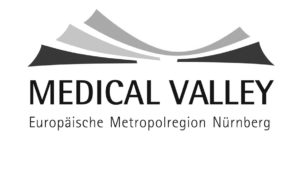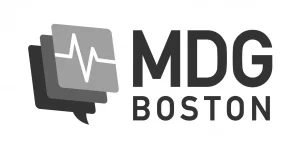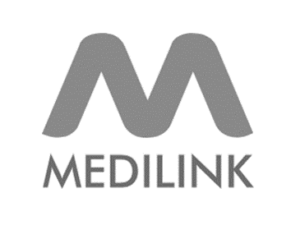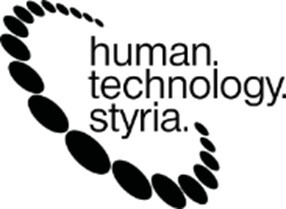‘We can cure all diseases, stabilise our climate, halt poverty’ ! It is not yet clear how the power and possibilities of AI will play out. Here are the best-case scenarios for how it might help us develop new drugs, give up dull jobs and live long, healthy lives.
Recent advances such as Open AI’s GPT-4 chatbot have awakened the world to how sophisticated artificial intelligence has become and how rapidly the field is advancing. Could this powerful new technology help save the world?
1. ‘More intelligence will lead to better everything’
Everything’s going to improve. We will be able to cure cancer and heart disease, and so on, using simulated biology – and extend our lives.
The average life expectancy:
- it was 30 in 1800
- it was 48 in 1900
- it’s now pushing 80
- and we may reach “longevity escape velocity” by 2029.
If the wrong people take control of AI, that could be bad for the rest of us, so we really need to keep pace with that, which we are doing. But we already have things that have nothing to do with AI, such as atomic weapons, that could destroy everyone. So it’s not really making life more dangerous. And, it can actually give us some tools to prevent people from harming us.
We’ve made great progress but there are still people who are desperate. More intelligence will lead to better everything. We will have the possibility of everybody having a very good life.
2. ‘We can use AI tools right now to help fight climate change’
Everyone wants a silver bullet to solve climate change; unfortunately there isn’t one. But there are lots of ways AI can help fight climate change. While there is no single big thing that AI will do, there are many medium-sized things.
The first role AI can play in climate action is distilling raw data into useful information: taking big datasets, which would take too much time for a human to process, and pulling information out in real time to guide policy or private-sector action.
The second role is optimisation of complicated systems: such as the heating and cooling system in a building, where there are many controls that an algorithm can operate efficiently. Many companies are improving energy efficiency, and there is a lot of progress still to be made, especially in industries such as steel and cement.
The third theme is forecasting: AI can’t predict something big-picture like what’s going to happen to the economy e.g. what power is going to be available based on the sun and the wind, forecasting how a storm is going to move, or the productivity of crops based upon the weather.
The fourth theme is in speeding up scientific simulations: such as in climate and weather modelling.
Thinking of AI as a futuristic tool that will lead to immeasurable good or harm is a distraction from the ways we are using it now
3. ‘There is going to be an amazing revolution in healthcare’
There is a rapid transformation in the pharmaceutical industry and university research, where they’re shifting to the use of AI to help discover new molecules and new drugs that would have fewer side-effects, and that would help us cure diseases that currently we don’t know how to cure, including cancer, potentially.
One reason AI can be useful here is that the body is very complicated. Even a single cell is extremely complicated: you have 20,000 genes, and they all interact with each other. Biotechnology has progressed to the point where we can measure all the genes’ activity in a single cell at once. While we collect huge quantities of data, the quantity of data is so large that humans are unable to read it. But because machines can, they are able to build models of how your cells work, and how they could be changing under different circumstances that cause disease. So, you can see what happens if you make an intervention; if you introduce a pollutant or a drug, what will be the effect?
This is not just something happening in academia. There are now dozens of startups that have been created at the intersection of AI and drug discovery, broadly speaking. These have been injected with billions of dollars, while pharmaceutical companies are beefing up their machine-learning departments.
4. ‘AI could radically accelerate the process of technological progress itself’
If we figured out how people are going to share in the wealth that AI unlocks, then I think we could end up in a world where people don’t have to work to eat, and are instead taking on projects because they are meaningful to them. E.g. Children do a lot of things because they enjoy them, and not just because they’re the best person in the world at them. They paint and draw, and they have a lot of fun; I paint and draw, and I have a lot of fun, even though [AI image generator] Midjourney is way better at making pictures than me. Similarly, since the 90s, we have had computer programs that can beat humans at chess, but lots of people still play chess.
If you have intelligent AI systems that are accessible to people, it’s as if everybody has access to an infinitely patient teacher so you could imagine training these AI systems to be an interface between humans and other humans.
5. ‘We can flourish, not just for the next election cycle, but for billions of years’
The positive, optimistic scenario is that we responsibly develop superintelligence in a way that allows us to control it and benefit from it. The “control” part is, I think, more hopeful than many people assume. There is a field of computer science called formal verification, where you come up with a rigorous mathematical proof that a program is always going to do what it’s supposed to. You can even create what is called “proof-carrying code”; it works in the opposite way to a virus checker. If a virus checker can prove that the code you are going to run is malicious, it won’t run it; with proof-carrying code, only if the code can prove that it’s going to do what you want it to do will your hardware run it. This is the type of mechanism we need to ensure advanced AI is safe.
We can’t do this yet with GPT-4 or other powerful AI systems, because those systems are not written in a human programming language; they are a giant artificial neural network, and we have almost no clue how they work. But there is a very active research field called mechanistic interpretability.
The goal is to take these black-box neural networks and figure out how they work. If this field makes so much progress that we can use AI itself to extract out the knowledge from other AI and see what it has learned, we could then reimplement it in some other kind of computational architecture – some sort of proof-carrying code – that you can trust. Then you can still use the power of neural networks to discover and learn, but now you can trust something that’s way smarter than you. Then what are we going to do with it?
The sky’s the limit.
Conclusion
We can cure all diseases, stabilise our climate, eliminate poverty, etc. We can flourish not just for the next election cycle, but for billions of years. We have been on this planet for more than 100,000 years, and most of the time we have been like a leaf blowing around in the wind, without much control of our destiny, just trying to not starve or get eaten. Science and technology and human intelligence have made us the captains of our own ship. If we can build and control superintelligence, we can quickly go from being limited by our own stupidity to being limited by the laws of physics.
It could be the greatest empowerment moment in human history.
Take a look at the article of The Guardian: https://www.theguardian.com/technology/2023/jul/06/ai-artificial-intelligence-world-diseases-climate-scenarios-experts












